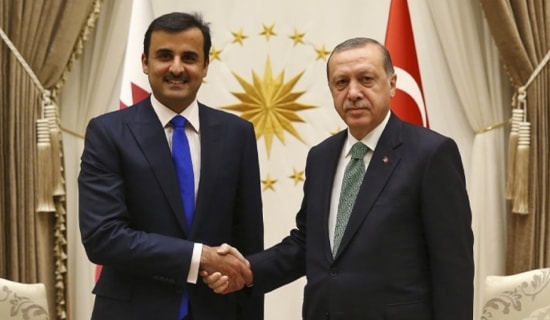Maxim Yusin, a columnist for the Russian daily Kommersant, commented that the North Korean Crisis proved to be timely for Moscow. According to Yusin, the American establishment will have now to face the truth: "What poses a more serious threat to U.S. security, Russian hackers and Moscow's interference in elections long past or an erratic regime armed with nuclear warheads and intercontinental missiles?" To take advantage of the situation, Russia will have to resist the temptation of playing the spoiler and curb diehard Stalinists who nurture a fondness for Pyongyang.
The following are excerpts from Yusin's article in Kommersant:[1]

Maxim Yusin (Source: Kommersant.ru)

North Korean leader Kim Jong-un hosted a gala celebration to honor the successful test of the country's sixth and most potent nuclear bomb, and called the test a "great victory." (Northkoreatimes.com, September 10, 2017)
Pyongyang's Nuclear Test Can Become A Moment Of Truth For The American Establishment
"The hydrogen bomb test, announced by North Korea, takes the world to the brink of a grave crisis. The United States and its allies (the United States first and foremost) ended up in a very challenging situation.
"On the one hand, they have to respond in some manner: the North Korean leader Kim Jong-un is deliberately and defiantly provoking Washington by ignoring its ultimatums and threats. If Pyongyang gets away with it, the prestige of the United States in general and the current administration in particular will suffer a serious blow. In such a case, President Trump, who threatened to unleash 'fire and fury' on North Korea, would be seen by the world as an irresponsible politician who lacks credibility and comes across as a 'tough guy' only on Twitter.
"On the other hand, punishing North Korea could have catastrophic consequences for the region by provoking the bloodiest war in several decades. Whether or not the world manages to find a way out of the Korean impasse will depend to a large extent on whether the great powers, the permanent members of the UN Security Council, including Russia, are able to act coherently and concertedly.
"However cynical this may sound, the eruption of the Korean 'hydrogen crisis' proved quite timely for Moscow. For a part of the American establishment that got drawn into an unprecedented political and diplomatic confrontation with Russia, Pyongyang's hydrogen bomb test can serve as a cold shower, a moment of truth and restored sobriety. Moments like these bring about a clear understanding as to which threat is real and which is imaginary or virtual, artificially inflated, and emotionally fueled. What poses a more serious threat to U.S. security, Russian hackers and Moscow's interference in elections long past or an erratic regime armed with nuclear warheads and intercontinental missiles?
"Even in the U.S. Congress that had voted for anti-Russian sanctions almost unanimously, the answer to this question may be obvious only to Senator McCain. At the very least, it should give pause for reflection to other lawmakers. As for the U.S. allies (both in Asia and Europe), their priorities are seen even more clearly.
Moscow Is A Potential Partner For Japan and South Korea
"For Tokyo and Seoul, Moscow is a potential partner in resolving the North Korean crisis, and not a geopolitical adversary at all. And European countries, many of whom have distanced themselves from Washington's hard-line policies toward Russia, will see the Kremlin's conduct with respect to North Korea as an important test. The test consists of whether Russia, when facing a global crisis, is prepared to side with the other leading powers and demonstrate a responsible approach or whether it yields to the temptation of playing the role of a diplomatic spoiler with the motto 'The worse it gets for the West (for the U.S.), the better it is for us'.
"Certain statements made by Russian deputies and senators with regards to North Korea do raise serious concerns about the appropriateness of Moscow's approach. An incomprehensible and unnatural affinity for the last Stalinist regime on the planet continues to burst through. But, fortunately, the Russian foreign policy is not being determined by deputies feeling nostalgia for the Soviet Union.
"The initial reaction of the Russian Foreign Ministry to the North Korean nuclear test was extremely tough, unusually so for Moscow addressing Pyongyang. However, the current situation is unconventional, even extreme. By and large, Russia does not risk a lot and has little to lose. North Korea is not its client, but that of China's. And it is Beijing that will have to make an agonizing choice and to work out its approach to dealing with the rebellious satellite. And so it is China that will be subject to pressure by South Korea, Japan and, of course, the Donald Trump administration.
"Moscow could conceivably take advantage of this situation and try to play the role of an intermediary, a mediator, and in the process strengthen its positions in the region and in the world. There is but one precondition: it needs to work in unison with the world community, not counter to it."
[1] Kommersant.ru, September 3, 2017.




